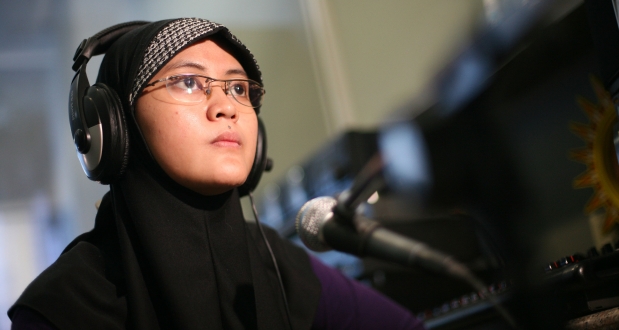- About
- Topics
- Picks
- Audio
- Story
- In-Depth
- Opinion
- News
- Donate
- Signup for our newsletterOur Editors' Best Picks.Send
Read, Debate: Engage.
| June 27, 2018 | |
|---|---|
| topic: | Women's rights |
| tags: | #women's rights, #Kenya, #land rights, #Laikipia |
| located: | Kenya |
| by: | Israel Bionyi |
For too long, the gender debate mainly focused on women. But the spotlight, so far, does not empower women enough or increase their place in the society.
A new approach is bringing men to champion women’s rights in rural communities across Africa.
"We want women to have full rights to access land for grazing and building their houses", says Chief Samson Ole Monto of Laikipia North constituency, Kenya.
Laikipia has been a hotbed for tensions for years and has a history of repressing women. In 2017, local media reports counted over 20 deaths in Laikipia in clashes between pastoralists and farmers- mostly white- that own roughly 50% of the landmass in Laikipia County. Though normalcy is back in the county, the last two decades have been particularly deadly and such hostile episodes mask decades of women repression in the community. "Our men sell the lands and sometimes all the cattle with it without caring about us," 35-year-old Mulugua Ole from Laikipia laments.
A couple of a few years back, Chief Ole was running his community business as usual when Ms Trevenia Mwamburi, a grassroots woman and local land rights champion walked in his community with an alien idea about protecting women land rights and becoming a women champion. Though the initiative sounded unfamiliar to Chief Ole, he reasoned his conflict-ridden community would benefit more if women could have rights. With the initiative, Chief Ole, now cherish women’s contribution to the development of his community, thus understands the importance of campaigning for their land rights.
Coined in the collaborative action research project between the Dutch think tank, Land Academy and several civil society organisations across Africa working to secure women’s lands rights, the initiative engages men in the gender debate. Led in Africa by five civil society organisations—Enda Pronat in Senegal, ADECRU and Forum Mulher in Mozambique, GROOTs Kenya and ActionAid in Kenya, and Oxfam in Malawi, the initiative works in the four mentioned countries to scale up promising ideas to securing women’s land rights from the grassroots. Women’s voices and everyday experiences inspire and inform the thoughts around selected innovations.
The research initiative makes gender activism inclusive by involving men. During activities, women and men learn to advocate together for women’s rights to other hostile men and communities. For instance, while her county, Ms Mwamburi develops community debate avenues where men and women work together to develop ideas to make informed decisions. " We hold several youth, women and men forums to form bigger movements for actions, where [men and youth] support us lead the fight for our rights," she says.
Transform an island of action to an ocean of impact
Building on the momentum generated by the Kilimanjaro initiative-a rural women movement, which mobilised 400 women to Kilimanjaro to demand their land rights in 2016, the participatory action research programme gathers knowledge and harnesses successful grassroots-led women land rights ideas to scale all over Africa.
As Frits van der Wal from the Dutch Ministry of Foreign Affairs- the programme’s funder-puts it, the programme works to “transform an island of success into a sea of change” for Africa. Changes Achille Mbembe, Cameroonian professor at Johannesburg’s Wits University is upbeat can transform the entire planet. "The future of our planet is being shaped by movements taking place on the African continent right now," he says on his Facebook page in a debate about development happening in Africa.
African royalties campaign for women land rights
Though such ideas have met fierce resistance in the past, African royalties are embracing it.
For example, Paramount Chief, Inkosi ya Makosi M'mbelwa V, 34, of Mzimba district in Malawi welcomes the liberal ideas. Particularly as such ideas brandish values existing in traditional customs. In his Kingdom, women have rights to own and inherit the land.
An important hallmark of the research programme is that grassroots civil society leaders and experts are also champions.
In a two-day learning workshop held at the Concord Hotel and Suites in Nairobi, Kenya on April 22-23 2018, land rights activists–again, both women and men–clashed in ideas and learnt from each other.
Local champions, males and females developed dialogues from their own perspectives and then shared methods and tactics used to campaign for rights and for sustainable development that would benefit all.
More advocacy required
From the discussions, it is clear there is progress in the countries where the programme focuses, but communities need more efforts to transform the dynamism created into real progress for people.
For Ms Mwamburi, who convinced her husband and other local chiefs to also become champions, the way forward is more advocacy.
“I cannot say our rights are sufficiently protected, we are still struggling,” says Ms Mwamburi.
It was not easy for Ms Mwamburi to become a woman champion, her husband and community were not pleased when over five years ago, she started visiting women forums and came across the Grassroots Women's Movement in Kenya (Groots Kenya), a network that empowers women through advocacy and capacity development. Every meeting then became a secret and gradually subtle messages invaded her husband until he became a female champion. With Groots Kenya, Ms Mwamburi learnt how to campaign for rights and convince men to do the same.
Few women hold land tittles and pursue their land rights. Ms Mwamburi is taking the rights campaign to men, women and youth in communities. While home, “we go around the community to [sensitise] people on land rights,” she adds.
By copying the embed code below, you agree to adhere to our republishing guidelines.
